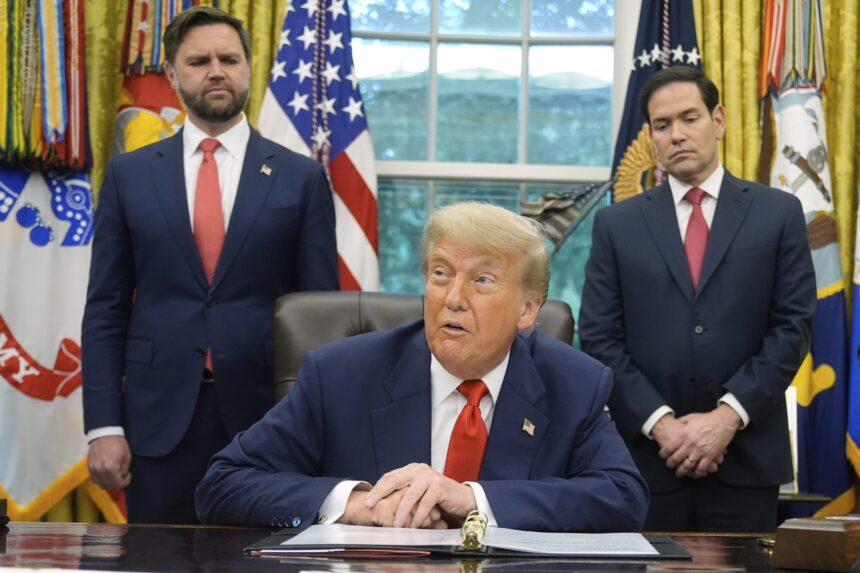In a dramatic escalation of tensions between longtime allies, former President Donald Trump has turned his attention northward, launching a pointed attack against Canada’s Digital Services Tax (DST) implementation. The move signals what many analysts fear could become another tumultuous chapter in North American trade relations just as global markets struggle to find stable footing.
“Canada’s terrible digital tax is nothing but a direct assault on American companies,” Trump declared during a campaign rally in Michigan yesterday. “They think they can take advantage of us while we’re focused elsewhere. Well, I’m putting Justin Trudeau on notice—this ends now or there will be consequences.”
The controversial DST, which Canada began phasing in earlier this year, imposes a 3% tax on revenue generated by large digital companies operating within Canadian borders. The policy primarily affects American tech giants like Google, Amazon, and Facebook, who have established significant market presence in Canada while maintaining their primary operations—and tax obligations—in the United States.
Canadian Finance Minister Chrystia Freeland defended the measure in a press conference this morning, emphasizing that the tax aims to create “digital equity” in an increasingly online economy. “This isn’t about targeting American businesses,” Freeland stated. “It’s about ensuring multinational corporations pay their fair share in the markets where they generate profit, regardless of physical presence.”
Economic analysts at the Royal Bank of Canada estimate the tax could generate approximately $4.2 billion in revenue over five years for the Canadian government, but warn that retaliatory measures from the U.S. could far outweigh these gains. “The risk-reward calculation here is precarious,” noted Sophia Chen, RBC’s chief trade analyst. “If this sparks a new trade war, Canadian exporters across multiple sectors could face devastating tariffs.”
The timing of this dispute is particularly sensitive as both countries face economic challenges. Canada’s GDP growth has slowed to 1.2% in the past quarter, while U.S. inflation concerns persist despite recent Federal Reserve interventions. Trade between the two nations reached $875 billion last year, supporting an estimated 2.5 million jobs on both sides of the border.
This isn’t the first time Canada’s digital tax policies have created friction. The Biden administration has expressed concerns through diplomatic channels but avoided public confrontation. Trump’s more aggressive stance suggests a potential return to the combative trade policies that characterized his first term, when he famously referred to Canada as a “national security threat” to justify steel and aluminum tariffs.
Technology industry representatives have voiced support for Trump’s position. The Digital Economy Alliance, representing major U.S. tech companies, released a statement calling Canada’s DST “discriminatory” and “contrary to established international tax principles.” They argue the tax unfairly targets innovation and creates harmful precedent for digital taxation globally.
Canadian business groups, meanwhile, have urged the Trudeau government to seek diplomatic solutions. The Canadian Chamber of Commerce warned that escalating tensions could disrupt the integrated North American supply chains that thousands of businesses rely upon. “We cannot afford another trade war,” said Chamber President Perrin Beatty. “The last one left scars that some industries are still recovering from.”
International trade experts note that Canada’s move reflects a broader global trend toward digital taxation, with France, the UK, and several other European nations implementing similar measures. The OECD has been working to develop a consensus framework for digital taxation, but progress has been slow and uneven.
As markets react to this developing story, the key question emerging is whether this represents a serious threat to the Canada-U.S. trade relationship or merely campaign rhetoric aimed at energizing Trump’s base. With economic integration between the two countries at historic levels, will pragmatism ultimately prevail over populist trade positions, or are we witnessing the opening salvo of a new continental trade conflict?










